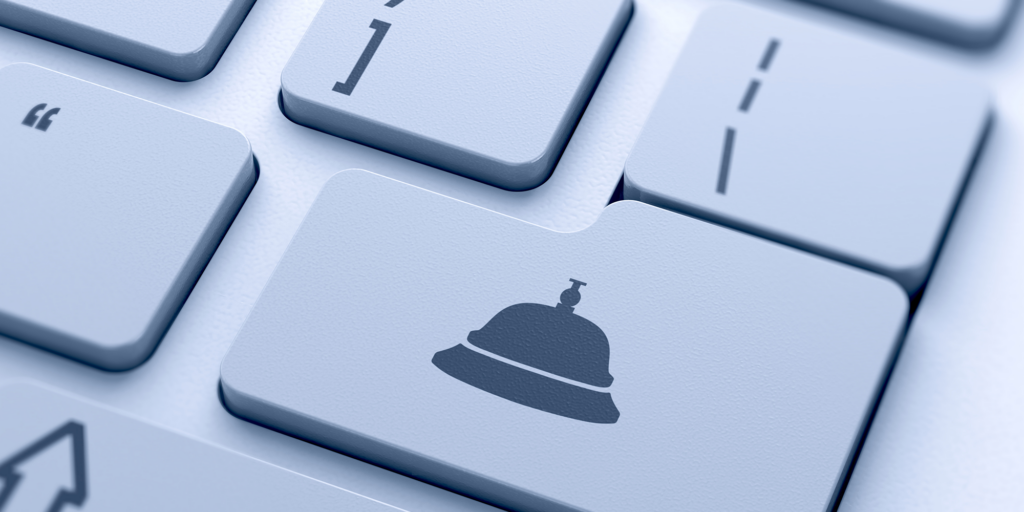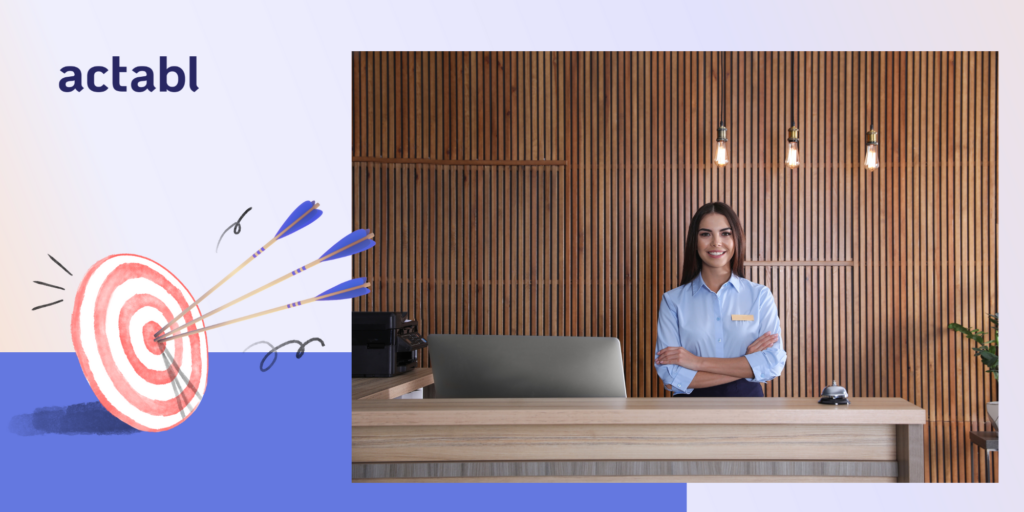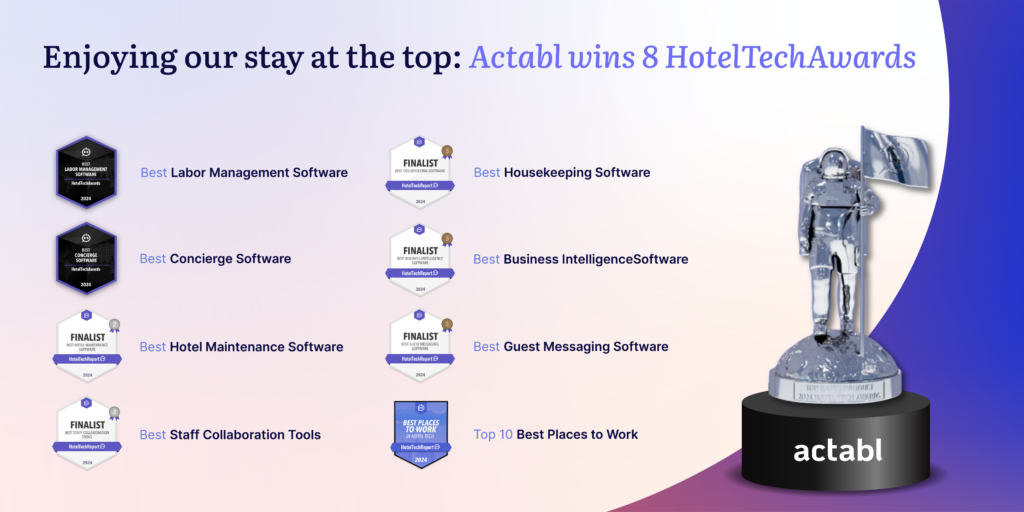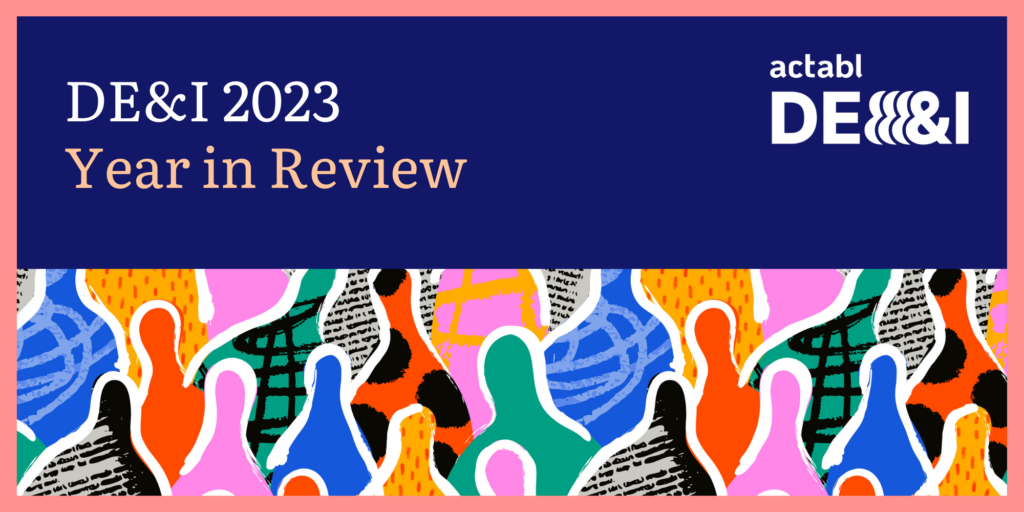
8 Questions to Ask When Choosing a Hotel Operations Platform Provider
What hotel operations software should I use? It’s a difficult decision. Should I use operations software at all? And how do I compare software options that seem so different? You’re often not simply trying to compare apples and oranges, but apples, oranges, peaches, and pears!
We posed these questions to Ryan Lancaster, Director of IT at The Peabody Memphis – a Forbes Four-Star Property featuring 464 rooms with 373 employees. Following Ryan’s expert advice, here are 8 questions to ask when choosing the right hotel operations platform solution and provider for your hotel.
1. Does our hotel even need operations management software?
“Hotel operations management software is something many hotels don’t understand they’re missing out on until they actually have it.”
Ryan Lancaster, director of IT at The Peabody Memphis
Housekeeping, maintenance, operational duties and addressing guest issues are handled on a daily basis at your hotel – regardless of hotel size. The right hotel operations software benefits task management throughout your business and bumps up your guest experience to the next level by helping ensure that nothing gets missed and everything is completed in a timely manner.
2. What specific benefits can the solution provide?
“The software used most often is our ALICE operations management software. Every department uses it, every hourly associate uses it, every manager uses it.”
Ryan Lancaster, director of IT at The Peabody Memphis
Some hotel operations management solutions only benefit a couple of specific departments. An all-in-one platform such as ALICE helps manage preventative maintenance and housekeeping tasks, as well as connects formerly siloed front desk, back office and leadership team members – adding accountability and efficiency to task management.
Instant communication among team members allows anyone to submit a ticket within the system at any time. So, your entire team can become even more responsive, more productive, working together to address guest requests and resolve any issues.
The Peabody Memphis provides a great example. After implementing ALICE, they increased to handling 20,000 tickets per month, 4x more than what’s average for the same-size hotel.
3. Does the provider offer an integrated solution?
Oftentimes hoteliers encounter a couple of four-letter words from providers – “can’t” and “won’t” – when it comes to integrating their solution with a hotel’s current systems. You need a provider that’s ready and willing to integrate the technologies you use. At a minimum, you want a provider that offers two-way integration with your PMS. Even better, one that integrates guest messaging so you can easily communicate with guests in real time – improving engagement and satisfaction.
4. What’s the provider’s iteration rate?
Another key factor to consider is a provider’s iteration rate. How often do they update their software based on need and customer feedback? Don’t hesitate to ask about reviewing previous release notes. If the provider only iterates once per five years, or offers only a few pages of release notes reflecting minor changes, that’s a huge red flag. The hotel industry is fluid and your systems are constantly changing. You need a partner who embraces iteration and constantly strives to change and be better.
5. Does the provider offer mobile technology?
Today’s guests are mobile-first. As a result, your provider should deliver their solution over cloud-based, mobile technology that’s accessible through a hotel mobile app and any browser or device with internet connection. This empowers real-time internal collaboration, hotel-guest communication and task management – improving daily operations across all departments within a hotel, or over multiple properties.
6. Is the solution easy to use?
“With ALICE, we didn’t even have to train our users. It is so intuitive, we just gave them a login and they got it. No muss, no fuss, no lengthy process. It couldn’t have been easier.”
Ryan Lancaster, director of IT at The Peabody Memphis
For the solution to be effective, you need a high degree of user acceptance. And to achieve high user acceptance, you need intuitive interfaces and a system that you can set and let run – no special training required. It should be easy for team members to see when they have a new ticket or task, and equally easy for them to accept that ticket and close it out upon completion. In addition, basic issues – such as a forgotten password – should be simple for people to resolve themselves, without having to drag the IT team into it.
7. How responsive is the provider?
Consider the conversations you’re having with a potential providers’ sales representative and account manager. Ask to speak with support personnel. Listen for the level of enthusiasm behind their voices. Are their voices monotone? Do they seem to care about your business? Or do they come across as excited about their solution and about partnering with you? You need a partner that offers the same level of responsiveness that you have with your own guests.
8. What’s the ROI?
“ALICE is one of the most cost-effective pieces of software that we have in the building. We can’t even add up all the money that we’re saving. And our reviews have gone up. The better reviews we get, the higher rate we can charge. It’s just simple mathematics.”
Ryan Lancaster, director of IT at The Peabody Memphis
The ROI should be easy to quantify when you look at the cost of the solution vs. the options it provides. It should help cut costs through increased automation and operational efficiencies, such as allowing you to stay on top of PM issues that could lead to high-cost problems down the road. And with the improved guest services the solution empowers, hotels should see reviews going up, with the ultimate benefit being an increase in the bottom line.







